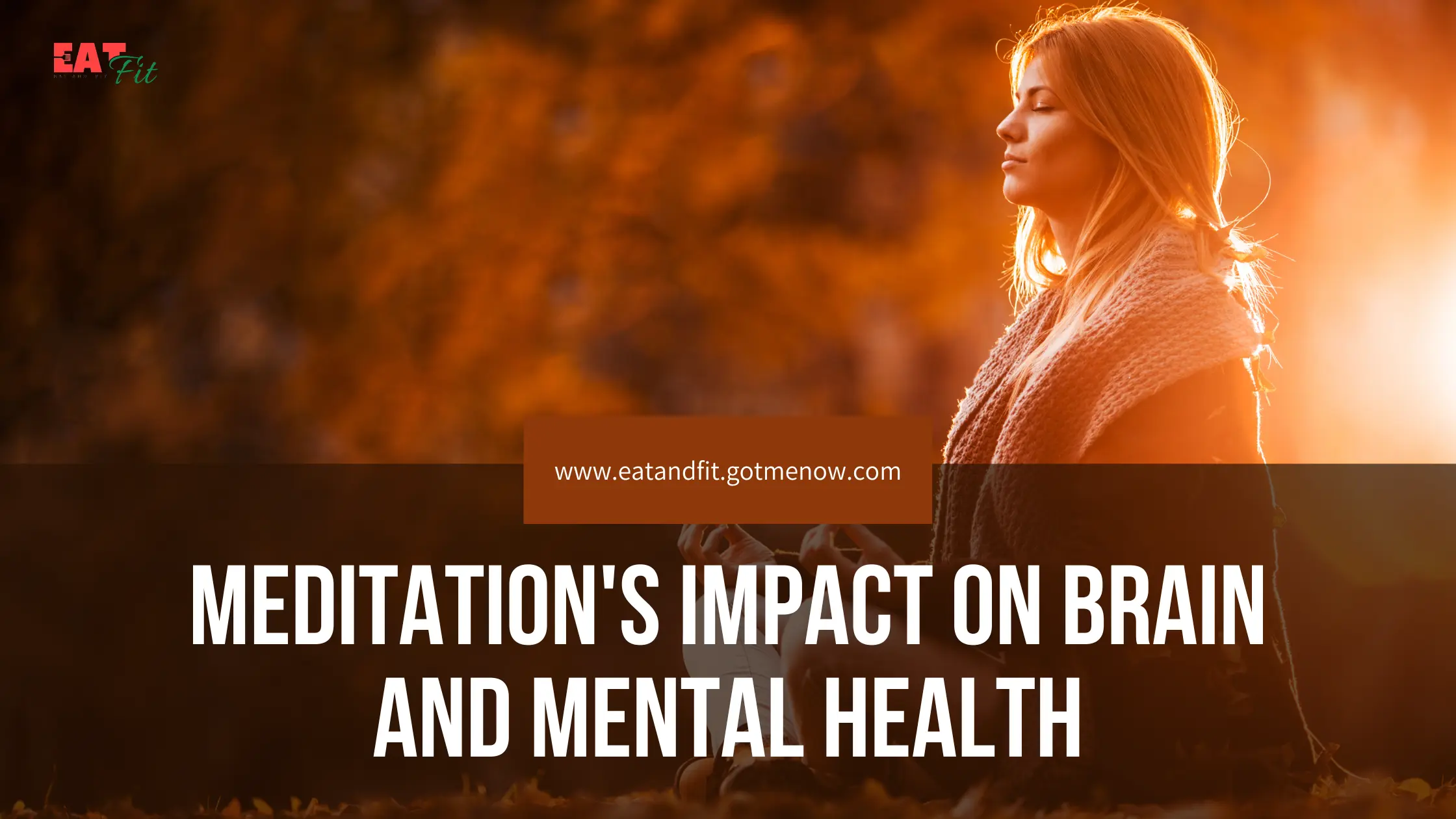The Impact of Meditation on Brain Structure and Mental Health

Table of Contents
- Introduction
- Mindfulness Meditation and Brain Structure
- Meditation and the Hippocampus
- Countering Age-Related Attention Decay
- Getting Started with Meditation
- Conclusion
- FAQ
Introduction
Meditation has been known for decades to have significant benefits for both physical and mental health. It can help reduce stress, lower blood pressure, and improve mood. Recently, neuroscientists have started to delve deeper into understanding the changes that occur in the brain structure as a result of meditation.
When we meditate, our neural circuits are rewired. This process involves pruning away unused connections and strengthening the ones we actively engage in. These changes have been observed through studies focusing on “mindfulness meditation,” which encourages individuals to concentrate on their thoughts and sensations in the present moment.

While it is important to acknowledge that these studies have limitations and may not be perfectly designed, researchers have gathered enough evidence to have confidence in the validity of their findings. One such finding suggests that Buddhist monks have stronger connections between different regions of their brains, allowing for more synchronized communication.
Additionally, expert meditators tend to develop a more wrinkly cortex, which is the brain’s outer layer responsible for complex mental abilities such as abstract thought and introspection. Meditation has also been shown to increase the volume and density of the hippocampus, a crucial area of the brain for memory.
Furthermore, while areas of the brain responsible for sustaining attention typically shrink with age, meditation can counteract this decay. Studies have demonstrated that just 12 to 20 minutes of daily meditation for several weeks can enhance attention and working memory. In some cases, lifelong meditators in their 50s and 60s have even outperformed younger individuals in tests of visual attention.
Therefore, if you are interested in reaping the benefits of meditation, it is advisable to start as soon as possible. The scientific evidence supports the positive impact of meditation on brain structure and mental health.
Mindfulness Meditation and Brain Structure
Mindfulness meditation is a practice that emphasizes bringing one’s attention to the present moment. It involves focusing on thoughts and sensations without judgment or attachment. This type of meditation has been found to have various benefits for brain structure and mental health.
Studies have shown that Buddhist monks, who are experienced meditators, have stronger connections between different regions of their brains. These robust connections allow for more synchronized communication, which is important for efficient brain functioning.
Furthermore, expert meditators tend to develop a more wrinkly cortex, the brain’s outer layer. The cortex is responsible for sophisticated mental abilities such as abstract thought and introspection. The increased wrinkling suggests that meditation may enhance these cognitive functions.
One crucial area of the brain that is positively affected by meditation is the hippocampus. This seahorse-shaped region is essential for memory. Meditation has been found to increase the volume and density of the hippocampus, which can improve memory and cognitive performance.
As we age, areas of the brain responsible for sustaining attention typically shrink. However, meditation has been shown to counteract this decay. Even just 12 to 20 minutes of daily meditation for several weeks can enhance attention and working memory.
The Science and Benefits of Meditation: A Comprehensive Guide
In fact, some lifelong meditators in their 50s and 60s have been found to outperform younger individuals in tests of visual attention. This suggests that meditation can have long-lasting benefits for cognitive abilities, even as we age.
Overall, the scientific evidence supports the positive impact of mindfulness meditation on brain structure and mental health. By practicing mindfulness meditation, individuals can potentially strengthen the connections in their brain, improve cognitive abilities, and enhance overall well-being.
Meditation and the Hippocampus
The hippocampus is a crucial area of the brain that plays a vital role in memory formation and retrieval. It is responsible for encoding new information and consolidating it into long-term memory. Without a healthy hippocampus, our ability to remember and learn would be greatly impaired.
Research has shown that meditation can have a positive impact on the structure and function of the hippocampus. Studies have found that regular meditation can increase the volume and density of the hippocampus, which is associated with improved memory and cognitive function.
By engaging in meditation practices, individuals can potentially enhance their memory and cognitive abilities. This is especially important for individuals who may be at risk of memory decline, such as older adults or those with neurodegenerative diseases like Alzheimer’s.
Furthermore, meditation has been shown to counteract the age-related shrinkage of brain areas responsible for sustaining attention. Even just a few minutes of daily meditation can improve attention and working memory, allowing individuals to stay focused and mentally sharp.
For those seeking to enhance their memory and cognitive function, meditation offers a promising avenue. By incorporating meditation into their daily routine, individuals can potentially strengthen their hippocampus and improve overall cognitive performance.

In summary, the research on meditation and the hippocampus suggests that practicing meditation can lead to increased volume and density of this crucial brain area. This can have significant implications for memory enhancement and overall cognitive function. Whether you are looking to improve your memory or simply maintain cognitive health as you age, incorporating meditation into your daily routine may be beneficial.
Countering Age-Related Attention Decay
As we age, there is a natural shrinkage of certain brain areas responsible for attention and focus. This decay can lead to difficulties in sustaining attention and working memory, which are crucial for daily life tasks.
However, meditation has shown promising results in counteracting this age-related attention decay. Studies have demonstrated that regular meditation can enhance attention and working memory, even in as little as 12 to 20 minutes of daily practice for several weeks.
When we meditate, we engage in a focused mental exercise that trains our attentional skills. This practice strengthens the neural circuits responsible for sustaining attention and improves our ability to filter out distractions.
Research has shown that lifelong meditators, particularly those in their 50s and 60s, have remarkable performance in visual attention tests, often outperforming younger individuals. This suggests that meditation can have long-lasting benefits for cognitive abilities, even as we age.
Furthermore, meditation has been found to improve working memory, which is the capacity to temporarily store and manipulate information in our minds. By enhancing working memory, meditation can help us stay focused, make better decisions, and perform tasks more efficiently.
Attention and working memory are essential for daily life tasks, such as reading, studying, problem-solving, and multitasking. By practicing meditation regularly, we can improve these cognitive abilities and enhance our overall performance in various aspects of life.
It is important to note that the benefits of meditation on attention and working memory are not limited to specific age groups. Individuals of all ages can experience improvements in their cognitive abilities through regular meditation practice.
In conclusion, meditation is a powerful tool for countering age-related attention decay. By engaging in daily meditation, we can strengthen our attentional skills, improve working memory, and enhance our overall cognitive abilities. The positive impact of meditation on attention and working memory has been supported by scientific studies and the impressive performance of lifelong meditators in visual attention tests.
Getting Started with Meditation
If you’ve been inspired by the benefits of meditation and are eager to start reaping its rewards, I encourage you to begin your practice as soon as possible. The sooner you start, the sooner you can experience the positive effects on your brain structure and mental health.
Consistency and frequency are key when it comes to meditation. It’s important to establish a regular practice and make it a part of your daily routine. Aim to meditate for at least 12 to 20 minutes every day. This duration allows you to fully immerse yourself in the practice and reap its benefits.
One way to incorporate meditation into your daily routine is to choose a specific time and place for your practice. Find a quiet and comfortable space where you can sit or lie down without distractions. Consider integrating meditation into your morning or bedtime routine, as these times often provide a sense of calm and tranquility.
When starting out, you may find it helpful to explore different meditation techniques and resources. There are various techniques, such as mindfulness meditation, loving-kindness meditation, and transcendental meditation, each offering unique benefits. Experiment with different techniques to find the one that resonates with you the most.
There are also many resources available to support your meditation journey. You can find guided meditation apps, online courses, and books that provide instructions and insights into the practice. These resources can help you deepen your understanding and guide you through your meditation sessions.
Remember, meditation is a personal practice, and there is no one-size-fits-all approach. It’s important to find what works best for you and adapt your practice to suit your needs and preferences. Be patient with yourself as you embark on this journey, and allow yourself the space to grow and evolve in your meditation practice.
So, why wait? Start your meditation practice today and begin experiencing the transformative effects it can have on your brain structure and mental well-being. With consistency, dedication, and an open mind, you can cultivate a peaceful and focused mind through the power of meditation.
Conclusion
In conclusion, the impact of meditation on brain structure and mental health is undeniably positive. Studies have shown that meditation can lead to rewiring of neural circuits, resulting in stronger connections between different regions of the brain and a more wrinkly cortex responsible for complex mental abilities. Additionally, meditation has been found to increase the volume and density of the hippocampus, which is crucial for memory.
Meditation also plays a significant role in countering age-related attention decay. Regular meditation practice has been shown to enhance attention and working memory, even in as little as 12 to 20 minutes a day. Lifelong meditators have demonstrated remarkable performance in visual attention tests, surpassing younger individuals.
If you are interested in reaping the benefits of meditation, I encourage you to explore this practice for your own well-being. Meditation is accessible to everyone, regardless of age or experience. It can be incorporated into your daily routine with just a few minutes of practice. The potential rewards of meditation include improved brain structure, enhanced cognitive abilities, and overall well-being.
While the existing research provides valuable insights into the positive impact of meditation, further studies in the field of meditation and neuroscience are essential. Continued research can deepen our understanding of the mechanisms behind meditation’s effects and help uncover additional benefits.
In conclusion, starting meditation now can have tremendous benefits for your brain structure and mental health. By incorporating meditation into your daily routine, you can experience the positive impact it has on your well-being and unlock your full potential.
FAQ
What is mindfulness meditation?
Mindfulness meditation is a practice that emphasizes bringing one’s attention to the present moment. It involves focusing on thoughts and sensations without judgment or attachment.
How can meditation improve attention and working memory?
Regular meditation has been shown to enhance attention and working memory. Even just 12 to 20 minutes of daily meditation for several weeks can sharpen the mind and improve cognitive abilities.
Are there any age restrictions for starting meditation?
No, meditation is accessible to individuals of all ages. Whether you are young or old, you can start incorporating meditation into your daily routine and experience its benefits.
Can meditation benefit individuals with memory problems?
Yes, meditation can benefit individuals with memory problems. It has been found to increase the volume and density of the hippocampus, a crucial area of the brain for memory. By practicing meditation regularly, individuals can potentially enhance their memory and cognitive abilities.
Where can I find resources to learn different meditation techniques?
There are various resources available to support your meditation journey. You can find guided meditation apps, online courses, and books that provide instructions and insights into the practice. These resources can help you deepen your understanding and guide you through your meditation sessions.









